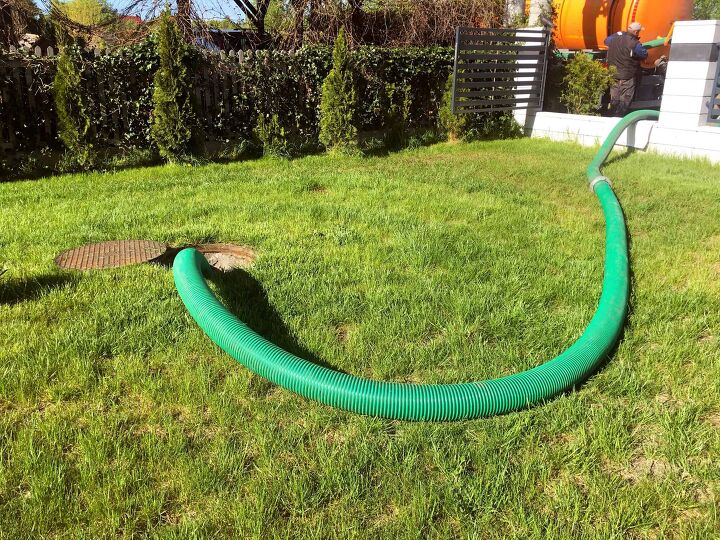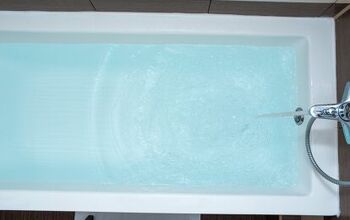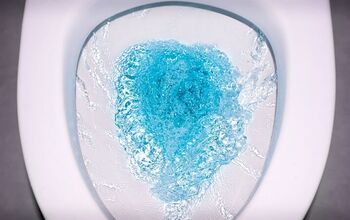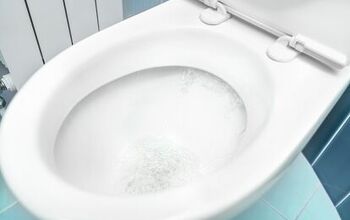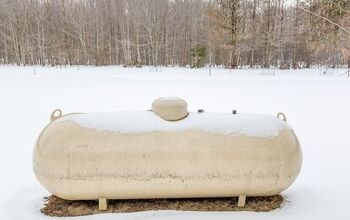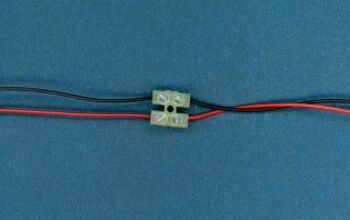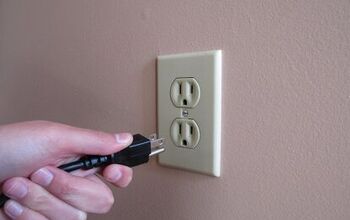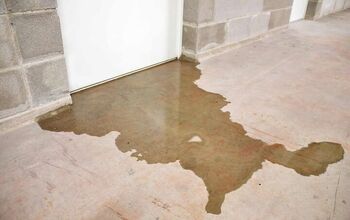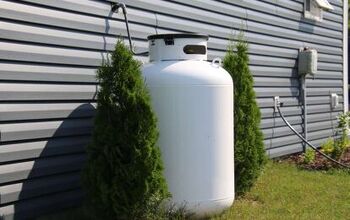Why Is There Water Around My Septic Tank? (Find Out Now!)

Standing water can be a scary sight if you find it near your septic tank, especially it hasn’t rained recently. Septic tanks are necessary for many homeowners, but they can pose a health risk if something goes wrong and it overflows. So, why is there water around your septic tank?
Water can pool around a septic tank if there is a drainage problem in the drain field or if the tank is full. Generally, water coming out of a septic tank lid means that there is a clogged line or excess scum in the tank. Septic tanks can overflow and leak water if you don’t pump them every 2-5 years.
It isn’t always an emergency if there is water around your septic tank, but it’s important to investigate it. A septic tank can contaminate the surrounding area and water sources if it overflows. Follow along as we explore the most common explanations for water around a septic tank.
Do You Need Septic System Repair?
Get free, zero-commitment quotes from pro contractors near you.

Why Is There Water Around My Septic Tank?
The most common reason for water to pool around a septic tank is that the drain field is flooded. Soil, sediment, and debris from the drain field can clog and disrupt your septic system. This can cause your septic tank to flood, and the water comes up and pools around the septic tank.
You can also find standing water around your septic tank if the ground drains water poorly, and that means it’s not the ideal spot for a drain field. Water can also pool around your septic tank if the tank is full, and you will notice a strong sewer odor around it. While it can be messy and smell bad at the time, this is the best-case scenario because you can simply pump it.
However, there is no reason to worry if there is water around your septic tank after heavy rain. You should only worry if it takes days after it stops raining for the rainwater around your septic tank to drain.
Water Coming Out of Septic Tank Lid
Water can come out of a septic tank lid if the lines are clogged and the tank overflows. The excess sludge in the lines creates pressure and waste can eventually spill out from the septic tank lid. You can generally tell that the septic tank is clogged or overly full before water comes out of it if you hear gurgling sounds or notice a bad smell in the septic field.
Drains slow down and take a long time to work when there is too much sludge and waste in the septic tank. Generally, water also comes up through the ground in the septic field as well if it leaks from the lid. You can drain the excess sludge from the septic tank, but you’ll need to be proactive and watch your water usage, chemical usage, and keep your lines clear.
How Often to Pump Septic Tank
Homeowners generally pump their septic tanks every 2 years on average, but you can sometimes wait up to 5 years. However, it varies based on your water consumption, how many people use the plumbing fixtures in your home, and the tank itself. Waste and sludge accumulate in the tank and can eventually cause the tank to overflow if you don’t pump it.
You can tell that it’s time to pump the septic tank if you notice a sewer odor in your home or if your drains clog easily. A sewage backup is the worst-case scenario and can happen if your septic tank is too full. It is ideal to pump your septic tank before it comes to that because of the sanitary risk and mess.
Keep track of the last time that you pumped your septic tank and pay attention to its performance after 2 years. The best time to pump a septic tank is anytime between 2 and 5 years, and large family homes generally need to do it sooner than single homeowners. It costs an average of $400 to pump a septic tank, and the cost is well worth it so that it doesn’t overflow.
How Long Do Septic Tanks Last?
Septic tanks last for an average of 30 years if you properly maintain and regularly pump them. You may need to replace a septic tank before then if it is damaged or if bacteria within it contaminates nearby water sources. Septic tanks can contain harmful bacteria that can potentially contaminate the surrounding area if something is wrong with the system.
This is more common in septic tanks that are 30 years or older, but you need to replace it immediately if contamination occurs. However, you can reduce the risk of contamination if you pump and service your septic tank as needed. Septic systems can last over 40 years in some cases based on the location, maintenance, and how many plumbing fixtures you have.
Minimize how much you use products that contain harmful chemicals such as fabric softeners, bleach, and drain cleaners. The chemicals in these products can kill the good bacteria in your septic tank which can lead to contamination.
Do You Need Septic System Repair?
Get free, zero-commitment quotes from pro contractors near you.

Related Questions
How much does it cost to repair septic tank?
It costs an average of $1,750 to repair a septic tank depending on what the problem is and how well you maintain it. Minor septic tank repairs cost as little as $200 if it takes under an hour, and it costs $400 on average to pump a septic tank. It costs an average of $8,500 to repair a drain field, or at least $2,000.
Why does my septic tank smell?
Septic tanks smell bad because they contain gases such as methane and carbon dioxide. Both methane and carbon dioxide are dangerous to humans, so you should contact a professional if the odor is stronger than you’re used to. Sewer gases can leak into your home if your septic tank is full, clogged, or not working properly.
How much does it cost to replace a septic tank?
The average cost to replace a septic tank is $3,250, but it varies based on the size of the tank. A standard 1,250 septic tank generally costs at least $1,500 to install. It costs at least $10,000 to replace a full septic system including a drain field.
Summing It Up
Water can leak around your septic tank if it is full or clogged with sludge and debris. You can also find water coming out of a septic tank lid if there is a clogged line and there is a backup. Bad soil can make it difficult for water to drain and it may stand near your septic tank for a while.
Pump your septic tank every 2-5 years so that it doesn’t leak when it’s full. Avoid using toxic chemicals such as bleach and enzyme cleaners that can damage the good bacteria in your septic tank and cause problems. Maintain and regularly pump your septic tank so that it doesn’t overflow and leak.
Related Guide

Kellan is a content writer who specializes in everything DIY. When he's not behind the keyboard, he enjoys spending time with his pets, playing music, and geeking out about basketball. He hopes to make your home improvement projects a little bit easier to accomplish.
More by Kellan Jansen



